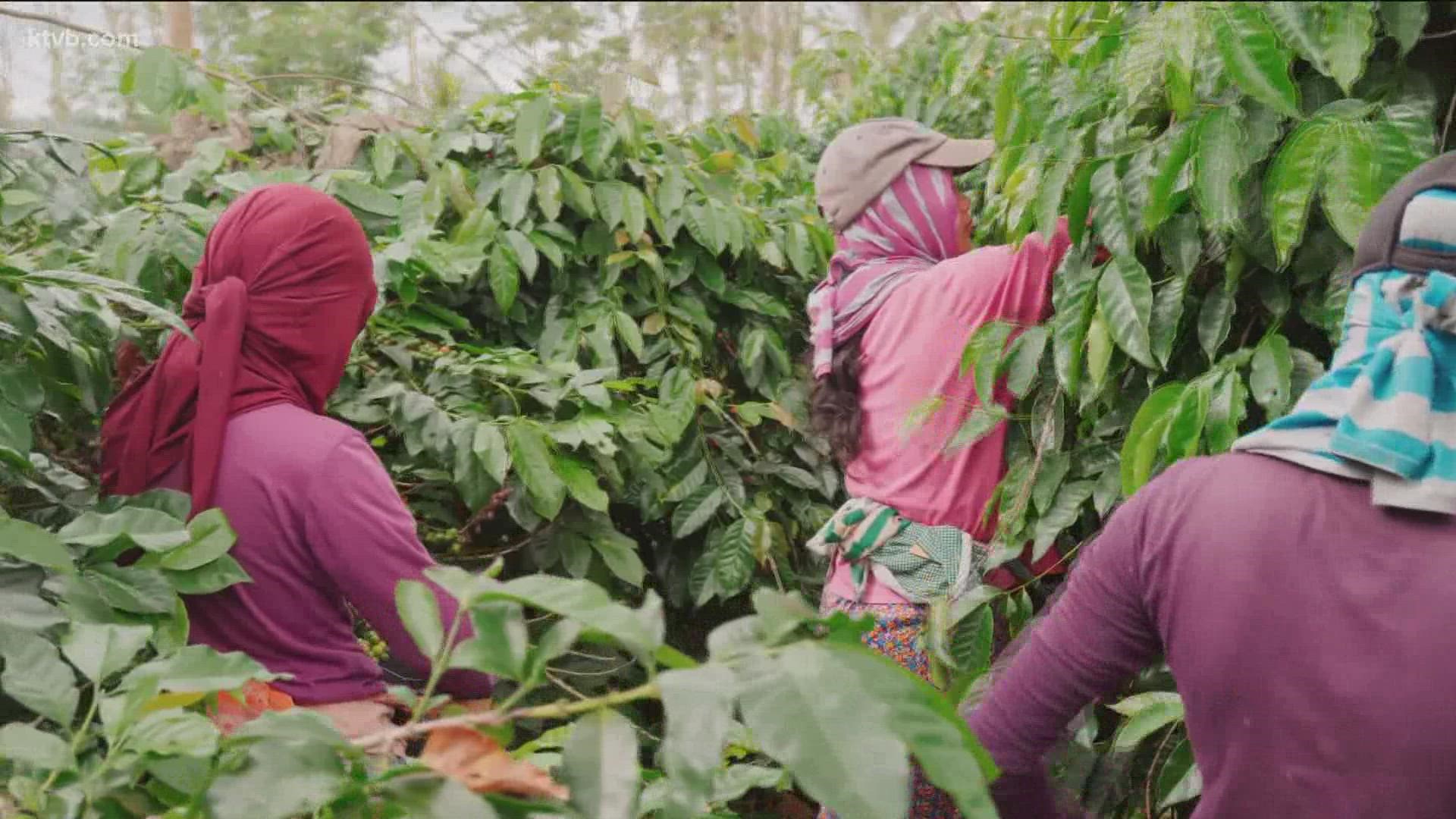BOISE, Idaho — Thousands of pounds of pesticides are applied to crops each year to protect them before they make it to your table. Those working in the fields are left having to experience the long-lasting effects of exposure.
Boise State research assistant Alejandra Hernandez, a former farmworker, said many workers are not warned about how to protect themselves.
“I sometimes would ask the people around me, 'did we get the proper training, because I just got here and we were just doing it,' and they responded, 'you know, you just hope for the best,” Hernandez said.
Post-Doctoral research scholar Cary Hyland is leading Boise State’s new study to better examine pesticide exposure and the risk perceptions in Idaho’s farmworkers.
“Farmers use a range of different pesticides that we'll be looking at like insecticides, herbicides, fungicides," she said. "These are synthetic chemicals used to remove weeds or insects from the crops that they're growing."
According to previous BSU studies, more than 80% of farmworkers in the United States identify as Hispanic or Latinx. Here in Idaho, migrant and seasonal farmworkers make up 38% of all agricultural workers in the state.
Hyland says their previous studies have shown high levels of exposure among farmworkers that can harm their health.
"In general, we have seen a lot of evidence that pesticide exposure among farmworkers is associated with a range of adverse health outcomes - some of them being neurodevelopment, increased risk of Alzheimer's, Parkinson's disease, increased risk of cancer,” said Hyland.
She also says previous studies show female farmworkers are more likely to develop pesticide poisoning.
Aside from potential pesticide exposure, Hyland says farmworkers also face more issues that could have negative effects on their overall wellbeing.
“Farmworkers do face a number of other social threats to their health, including poor or unsafe housing conditions, food insecurities, even though they are the ones that grow the food that we all eat, and other threats like fear of discrimination and harassment at work,” said Hyland.
Hernandez says this study is a start to help raise awareness of the risks farmworkers face every day.
"It's not to criticize the farmers. We just want the farmers to look at this and say, 'oh, well in this study people are saying they are not getting the right training," she said.
Hyland also hopes this study can lead to possible partnerships with state and local leaders to further bridge the disconnects.
“I think research is incredibly important for illuminating what challenges there are, understanding what the levels of pesticide exposure among these farmworkers are, but ultimately I do think we need policy and regulation that protect our farmworkers,” said Hyland.
Watch more Local News:
See the latest news from around the Treasure Valley and the Gem State in our YouTube playlist:

